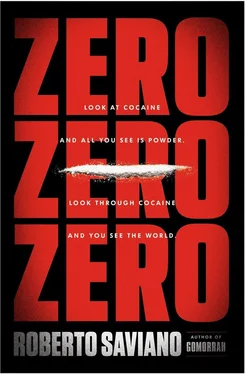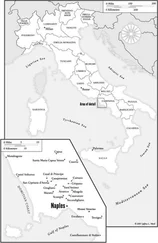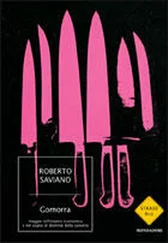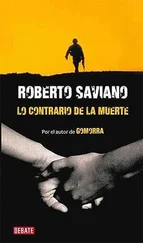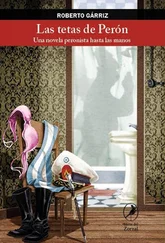Still, power such as hers cannot easily be defeated, even when it is forced between the walls of the female prison in Santa Martha Acatitla, on the outskirts of Mexico City. It’s here that the Queen of the Pacific ends up after being snagged by the police in a fancy Thai restaurant, eating lunch with her companion El Tigre. She’d been going about incognito and using a fake name for years. After her son’s kidnapping, things got more difficult for her, but that doesn’t mean she is going to give up dining in expensive restaurants or buying the latest Chanel outfit. “I’m a housewife who earns a living selling clothes and houses.” In prison she carries on doing what she has always done: fighting for women’s emancipation. She teaches her cell mates not to neglect their bodies or their looks even in prison. “If you lose your body, you lose your soul. If you lose your soul, you lose your power. If you lose your power, you lose everything,” she keeps telling her new “affiliates,” and she tries to set a good example. Apparently she even infects the prison director — a woman. One day some doctors are caught bringing Botox into the prison. The guards immediately think it’s for that prisoner who is obsessed with beauty, for the Queen and her new friends. Not true: The Botox is for the prison director. The Queen managed to convince even her that sensuality comes first, before everything else. Sandra parades in the hallways, showing off her big, dark, movie star glasses, and she never complains: never an attack of nerves; never a hysterical crying fit; never a protest other than for the slop the prison guards pass off as food. The Queen smiles at her misfortune and keeps fiery looks for the women who dare to complain to her about the world’s injustice: “If it’s disgusting to you, then change it!”
August 10, 2012: Sandra Ávila Beltrán is extradited to the United States to face drug-trafficking charges. But at the end of the trial all but one charge is dropped: providing money to her boyfriend, El Tigre, to help him avoid arrest. She is sentenced to seventy months in prison, a term she had already served almost entirely in her previous incarceration in Mexico. In August 2013 she is deported to Mexico, where she is immediately taken into custody in a penitentiary in Nayarit on money-laundering charges. But just after a few months a Mexican federal judge throws out a five-year sentence for money laundering, using the argument that she has already been tried for the same crime in both Mexico and the United States, and orders her immediate release. On February 7, 2015, at 10 P.M., the Queen leaves prison: Three SUVs are waiting for her outside. She climbs into one of them, a white BMW X5, and drives away. She is free. Will she go back to her throne?
• • •
Then there’s the story of a very special recipe.
“El Teo would bring me the corpses. I’d have everything ready: barrels, water, a hundred pounds or so of caustic soda. Latex gloves, gas mask. I’d fill the barrels with fifty gallons of water and two bags of caustic soda and heat them up. When the mix started to boil, I’d strip the bodies and throw them in. Cooking time’s about fourteen, fifteen hours. In the end all that’s left is the teeth, but it’s easy to get rid of those.”
The originator of this recipe is Santiago Meza López, nicknamed, not coincidentally, El Pozolero. Pozole is a typical Mexican meat stew. El Pozolero had long been on the FBI’s twenty most wanted list, and was arrested in January 2009. He confessed to dissolving three hundred bodies of members of a rival gang. The Tijuana cartel paid him six hundred dollars a week. Teodoro García Simental El Teo, head of a bloodthirsty gang tied to the Tijuana cartel, delivered the corpses and the cash.
“Never a woman, though. Only men,” El Pozolero insisted at the end of his interrogation.
• • •
Stories, stories, stories. I can’t get away from them. Stories of people, of torturers and victims. Stories of reporters who would like to tell about them and sometimes end up dead. Like Bladimir Antuna García, who had become a ghost of his former self. Haggard, prematurely gray around the temples and beard, which only took half a day to grow in. His weight fluctuated; his physique went haywire: two sticks instead of legs, protruding stomach. The prototypical drug addict. A consequence of his work, because Bladimir knew how to tell stories, and knew how to investigate, a difficult occupation in a place like Durango. He had crawled through the grimiest canals, the ones that collect wastewater stories, stories of sewers and of power. But those stories start to gnaw at your insides, you slam into the disgust, and when you can’t understand it, you trip, and then look for an explanation elsewhere. Whiskey and cocaine seemed like the solution. But Bladimir decided to leave all that behind; he wanted to go back to being considered one of the best reporters in Durango. He cleaned himself up, found work as a busboy in a tavern in the center of town. He did everything. Humble tasks, but not for Bladimir, who, thanks to his stories, had discovered just how ephemeral the boundaries of human dignity are. Meanwhile he tried to get back into the world of journalism. But the editors didn’t want anything to do with him; he was too unreliable, too well known, but for the wrong reasons. Sure, he’d been a talented reporter, but what if they found him crouched over a table again, his nose buried in a line of cocaine? For people who’ve seen you messed up, even if it was only once, you’re always a drunkard and an addict. But a new paper opened in Durango, El Tiempo, edited by Víctor Garza Ayala. The paper wasn’t doing so well. Maybe some crime stories, which readers really love, could help turn things around. Garza decided to hire Bladimir to cover the crime beat, but just in case, he relegated his section to the back, to the back page, so as not to cut into the politics section on the front page, which is what really matters to him. It’s that way all over the world. If a judge is killed or a car bomb explodes, the story conquers the most important pages. Otherwise crime gets relegated to the back. But Bladimir didn’t care; what mattered to him was the chance to start writing again, writing about cartels and the Zetas. And avoiding, at least at first, causing too much of a stir. But at a certain point the newspaper vendors started displaying the paper backward, with the last page in full view. Sales went through the roof.
Bladimir was relentless; he wrote dozens of news stories, some of which were exclusives, thanks to his excellent contacts in the army and police. To pay for his oldest son’s college education he got a second job with another newspaper, La Voz de Durango .
The first threat he gets is on his cell phone, in the middle of the night. A cavernous but clear voice utters two simple words: “Stop it.” His wife pretends to be asleep, but she hears everything and bites her pillow in silence. In the months that follow the phone calls become more frequent, always to his cell, always at night, always those two simple words: “Stop it.” Sometimes the speaker identifies himself as a Zetas member. Postcards start arriving at the newspaper, tropical beaches and beautiful women, and on the back, in childish lettering, that same command: “Stop it.”
“They’re just words.” That’s how Bladimir dismissed the escalating intimidations. He started working even harder, using his articles to attack corrupt policemen in the state of Durango and reporting loudly the threats he was receiving in the media and to the State Attorney’s office. Lifting the veil on criminal organizations in Mexico and naming famous narco-trafficking accomplices became a sort of creed for him. In July 2009 he talked about the phone calls in a series of interviews with the Mexico City magazine Buzos . He also told of the failed attempt on his life: On April 28, 2009, a man shot at him in broad daylight in the middle of the street, but missed. But when you start talking about threats, the community around you is always ready to say you’re paranoid, you’re exaggerating. Bladimir reported the threats and the attempt on his life to the authorities, but they didn’t do anything. Bladimir was working with Eliseo Barrón Hernández on a story about some policemen in the pay of the cartels. With Eliseo, they did what they always do. They waited till he left his house with his family, humiliated him by kicking and punching him in front of his daughters and wife, then took him away. Then they put a bullet in his head. His mistake had been to stick his nose in a story of corrupt policemen. “We’re here, reporters. Just ask Eliseo Barrón. El Chapo and the cartel don’t forgive. Be careful, soldiers and reporters.” These were Chapo Guzmán’s words, which appeared on several narco-banners hung in the streets of Torreón on the day of Eliseo’s funeral. A clear claim of responsibility, the way terrorists do it. An unequivocal message. Another one arrives at Bladimir’s newspaper office a few hours later: “He’s next, that son of a bitch.”
Читать дальше
